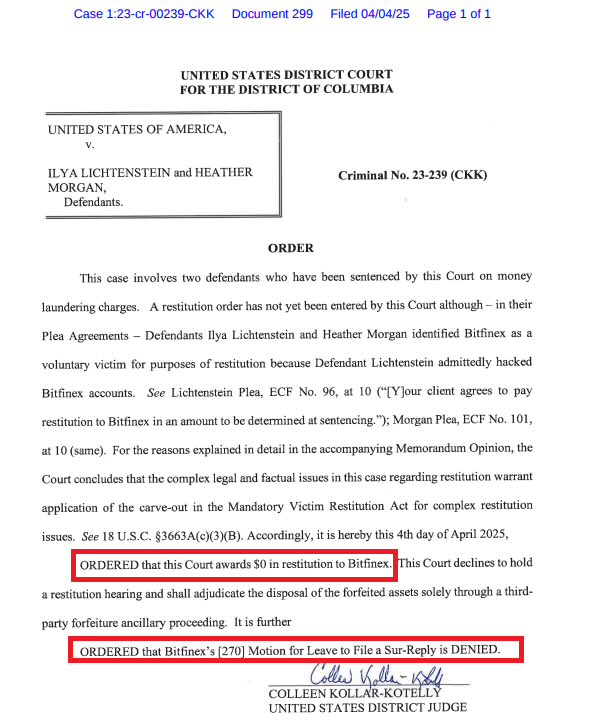
Why the U.S. Might Keep 94K BTC From Bitfinex Hack
Time to revisit the story of the Bitcoins stolen from Bitfinex in 2016 - and later confiscated by the FBI.
A quick recap:
- Back when Donald Trump was elected president, I suggested the U.S. wouldn’t return the stolen BTC to their rightful owners but would instead use them to build a strategic Bitcoin reserve - something Trump had floated during his campaign.
- In March, Trump signed an executive order to create a crypto reserve using assets seized by law enforcement.
But before that - in January - a U.S. court had ruled that 94,636 BTC confiscated from the Bitfinex hackers should be returned to the exchange. And technically, a presidential order can’t override a court ruling.
However, the court found a workaround: it decided that the coins didn’t actually belong to Bitfinex, but to its customers. And to return the BTC to their rightful owners, Bitfinex would have to provide a list of those customers.
That’s almost impossible. After the hack, Bitfinex spread the losses across all user accounts, reducing everyone’s balance by 36%. So even if you only held USDT at the time - yes, it already existed - you still lost 36% of your funds. To comply with the court, Bitfinex would now have to identify every single customer who had even a slightly positive balance back in 2016. But at the time, the platform - like most others - didn’t require mandatory KYC.
In short: those Bitcoins aren’t coming back.
Exchange wallets will always be attractive targets for hackers. And the Bitfinex case shows that even if the hackers are caught, the stolen funds might never make it back to users.
That’s why it’s safer to use non-custodial services that never hold your crypto and send it straight to your wallet.
Rabbit.io is exactly that kind of service - fast, simple, and secure.













